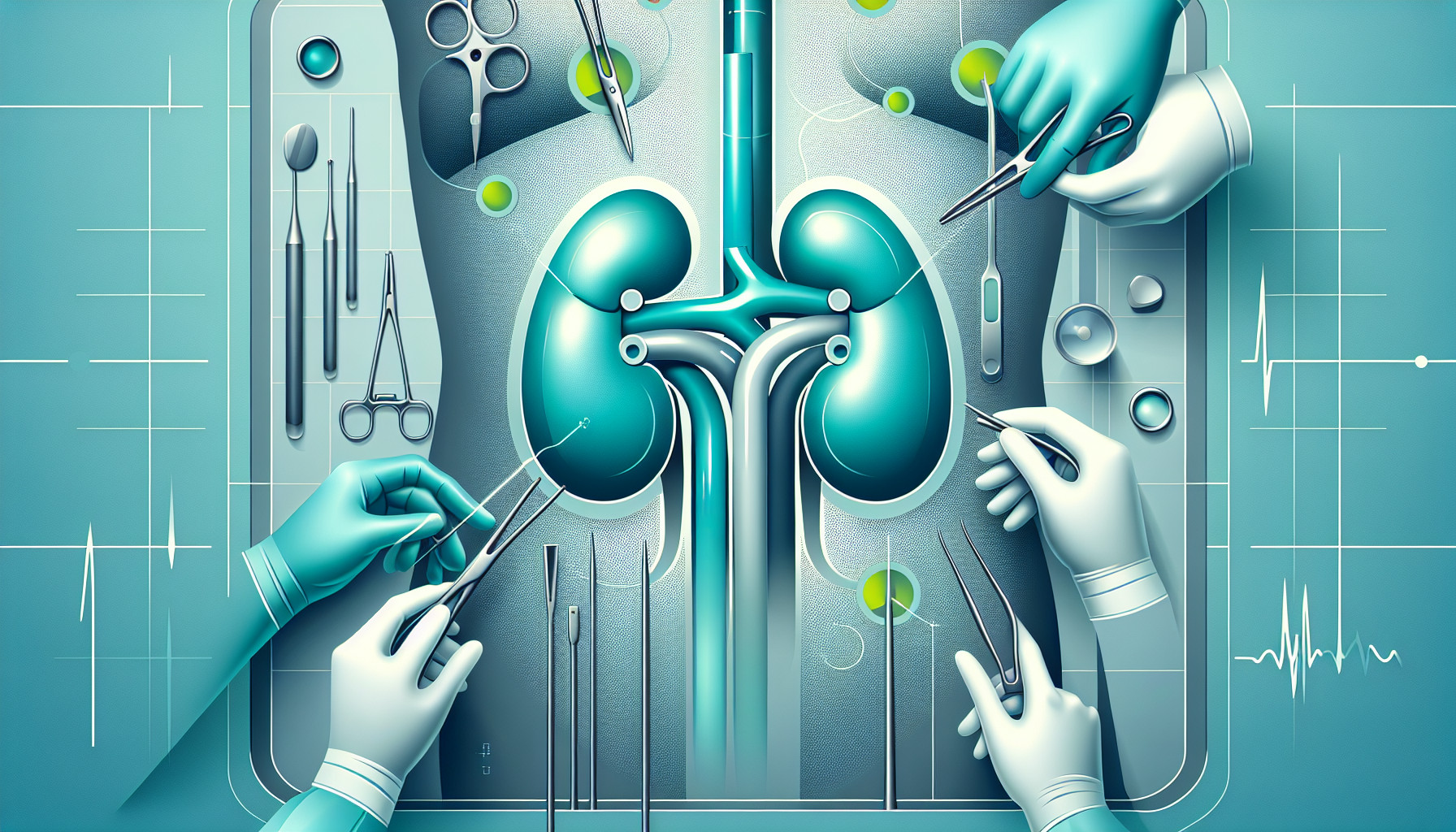Our Summary
This research paper looks at the trends in hospital readmissions, emergency department visits, and costs for patients who have had kidney transplants and then experienced complications. The study used a database of healthcare costs and usage from 1993 to 2015. The researchers found that the number of hospital discharges has increased significantly over that time period, and at a faster rate than the number of kidney transplants being performed. However, the number of emergency department visits has not changed. The most common and costly complication was organ rejection. The researchers suggest that better drug regimens have led to improved survival of the transplanted kidney, but there is a link between infection and rejection that could lead to damage to the new kidney. They argue that it is important to prevent and correctly identify these issues in order to improve the survival of the new kidney.
FAQs
- What was the main purpose of this research study on kidney transplants?
- What were the most common and costly complications found in patients who had kidney transplants?
- What is the link between infection and rejection in kidney transplant patients and how can these issues be prevented?
Doctor’s Tip
One helpful tip a doctor might tell a patient about kidney transplant is to closely follow the prescribed medication regimen to prevent organ rejection. It is important to take immunosuppressant drugs as directed and to report any signs of infection or other complications to your healthcare provider promptly. Additionally, maintaining a healthy lifestyle, including a balanced diet and regular exercise, can help support the success of the transplant. Regular follow-up appointments with your transplant team are essential for monitoring your kidney function and overall health.
Suitable For
Patients who are typically recommended for kidney transplants are those who are suffering from end-stage renal disease (ESRD) or kidney failure. These patients may have been on dialysis for an extended period of time and are experiencing complications such as high blood pressure, anemia, bone disease, and electrolyte imbalances. Patients with diabetes, hypertension, autoimmune diseases, or genetic disorders that affect the kidneys are also common candidates for kidney transplants.
In addition, individuals who have a history of recurrent kidney stones, kidney infections, or polycystic kidney disease may also be recommended for a kidney transplant. Patients who have a family history of kidney disease or who have a close relative who has undergone a successful kidney transplant may also be considered for the procedure.
Overall, the goal of a kidney transplant is to improve the quality of life and overall health of the patient by providing them with a functioning kidney that can effectively filter waste and excess fluid from the body. Transplant recipients must also be willing to adhere to a strict medication regimen and follow-up care plan in order to ensure the long-term success of the transplant.
Timeline
Before kidney transplant:
- Patient is diagnosed with end-stage renal disease and is evaluated for kidney transplant candidacy.
- Patient undergoes extensive medical and psychological evaluations to determine suitability for transplant.
- Patient is placed on the national transplant waiting list and waits for a suitable donor match.
- Patient undergoes pre-transplant medical preparations and tests to ensure readiness for surgery.
After kidney transplant:
- Patient undergoes kidney transplant surgery and begins post-operative recovery.
- Patient is closely monitored for signs of organ rejection and infection.
- Patient must adhere to a strict medication regimen to prevent rejection and manage potential side effects.
- Patient undergoes regular follow-up appointments and medical tests to monitor the health of the transplanted kidney.
- Patient may experience complications such as organ rejection, infection, or side effects from medications, which may require hospital readmissions or emergency department visits.
- Patient must make lifestyle changes to support the health of the transplanted kidney, including maintaining a healthy diet, staying active, and avoiding harmful substances.
- Patient may experience improvements in quality of life and overall health following successful kidney transplant.
What to Ask Your Doctor
- What are the potential risks and complications associated with kidney transplant surgery?
- How long is the average recovery time after a kidney transplant?
- What medications will I need to take after the transplant, and what are the potential side effects?
- How often will I need to have follow-up appointments and tests to monitor the health of my transplanted kidney?
- Are there any dietary or lifestyle changes I should make to support the success of the transplant?
- What signs or symptoms should I watch for that may indicate rejection or infection of the transplanted kidney?
- How can I reduce my risk of developing complications or rejection of the transplanted kidney?
- What is the success rate of kidney transplants at this hospital or medical center?
- Are there any support groups or resources available for kidney transplant patients?
- What is the long-term outlook for someone who has had a kidney transplant?
Reference
Authors: Spiwak E, Nailescu C, Schwaderer AL. Journal: Clin Nephrol. 2022 Feb;97(2):93-102. doi: 10.5414/CN110578. PMID: 34779389
